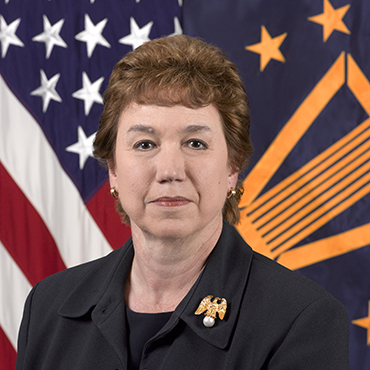DOD prioritizes tech transfer to trusted Asian allies
Amid top-brass concerns about China's theft of U.S. military intellectual property, Defense Technology Security Administration Director Beth McCormick laid out DOD’s approach to secure technology transfers.

DSTA Director Beth McCormick says the U.S. is focused on ensuring that allies are not letting sensitive tech "go to some place that we wouldn’t actually authorize it to go."
Pentagon officials long worried about Chinese theft of intellectual property are prioritizing the secure transfer of U.S. defense technology to Asian allies wary of China's military rise.
In the last few months, according to Defense Technology Security Administration Director Beth McCormick, DOD has begun a security initiative that works to strengthen the export control regime of U.S. allies. In an era of tight budgets, the Pentagon has had to concentrate its effort somewhere. That somewhere is Asia, where the Obama administration has declared a "pivot" or "rebalance" of U.S. strategic attention from other parts of the world.
Southeast Asia, with Singapore as a "focal point," is a "critical gateway" for trade that "requires significant awareness through the domains of air, sea, space and cyber, where intelligence, surveillance and reconnaissance technologies are vital force multipliers," McCormick said in a Dec. 17 speech at the Hudson Institute in Washington, D.C. As head of DTSA, she is the senior Pentagon official who works with the State Department and other agencies to shape U.S. export control policy.
McCormick made scant, if any, direct reference to China in her speech. Yet Beijing has been front-and-center in public discussions about protecting U.S. military intellectual property.
In an annual report to Congress released in June, the Pentagon accused China of using its "intelligence services and other illicit approaches to collect sensitive U.S. information and export-controlled technology in violation of U.S. laws and export controls." That report came out within weeks of the Justice Department issuing its first indictment of state-sponsored cyber espionage, against five members of the Chinese military.
McCormick did, however, say that the U.S. government is focused on making its allies keenly aware that other countries could be trying to steal U.S. technology they acquire.
"We want them to protect the technology and to make sure that they’re not allowing it to go to some place that we wouldn’t actually authorize it to go. But really it’s in their interest as well," she said.
China's cyber spies have targeted countries such as South Korea and Japan because of their close technological trade relationship with the United States, according to Tony Cole, vice president and global government CTO at FireEye, a network security firm.
The United States is encouraging allies to do threat analyses when they trade in sensitive technology with other countries, McCormick said. That means trading in the appropriate quantity and type of technology, and thoroughly vetting all recipients.
McCormick held out Japan as a model trading partner in technology, calling the bilateral relationship “a true measure of information technology security” and pointing favorably to Japan's revision of a prohibition on defense technology exports.
Japan, Australia, New Zealand and South Korea are what she dubbed "mature practitioners" of security export controls. Those countries also all happen to be close U.S. allies; Japan and South Korea each host tens of thousands of U.S. troops.
"These nations represent the measure by which emerging partners in Asia should aspire in terms of expanding greater technology sharing that is commensurate with their technology security practices," McCormick added.
For a Defense Department acutely concerned with its dwindling technological edge – in part because of cyber espionage – McCormick summed up a technology trade policy as: "Share what we can, protect what we must."
NEXT STORY: VA Turns to IBM Watson to Improve Veteran Care





